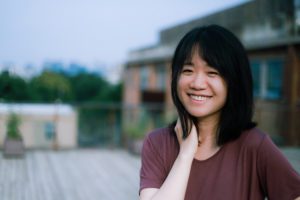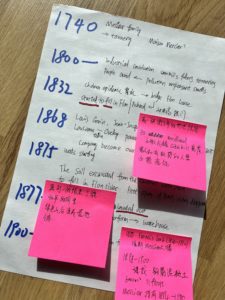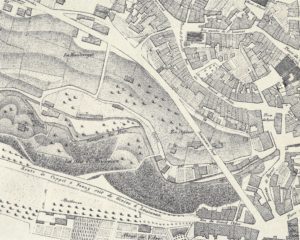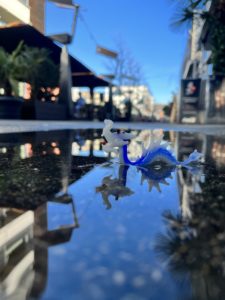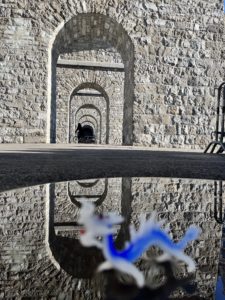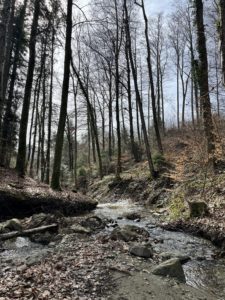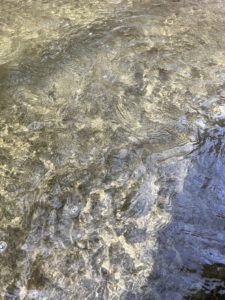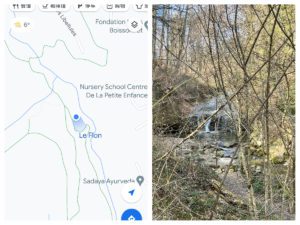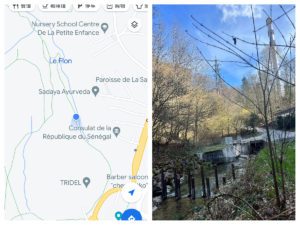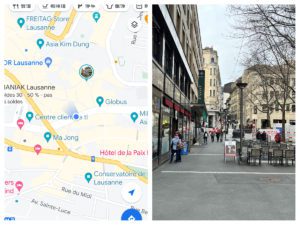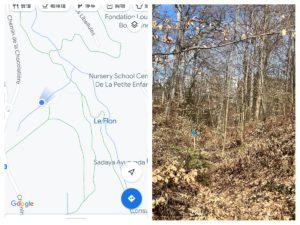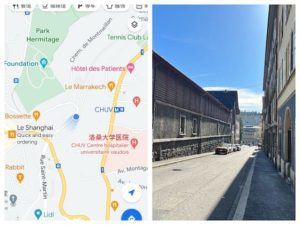Recherche et création dans le théâtre documentaire suisse
Xiao Jing – Résidence 2023
La metteure en scène, dramaturge et comédienne chinoise Xiao Jing est accueillie par La Grange en résidence de février à avril 2023 dans le cadre du programme Artist in Residence de Pro Helvetia.
Durant trois mois, elle se familiarise avec les réseaux culturels de Suisse romande et rencontre des créateuricexs spécialiséexs dans le théâtre documentaire ou présentant un intérêt particulier pour les questions sociales et politiques. Elle mène une enquête de terrain auprès de compagnies et de structures culturelles locales, mêlant observation de leur processus de recherche et de création, entretiens et documentation vidéo.
Dans son travail de mise en scène, Xiao Jing combine fiction et non-fiction, événements réels et récits fictifs pour étudier comment les événements historiques, la culture populaire et les récits dominants façonnent et transforment les individus.
Du 16 mars au 13 avril 2023, elle nous invite à découvrir son processus de travail en publiant chaque semaine un nouveau chapitre de son journal de bord sur cette page (en anglais).
Le 20 avril 2023, à l’occasion de la fin de sa résidence, participez à un atelier suivi d’une présentation autour de son travail artistique et de recherche en Chine et à Lausanne, et notamment des conditions de création dans les arts de la scène contemporains en Chine. Toutes les infos et inscriptions ici
Xiao Jing travaille comme metteure en scène, dramaturge et interprète au théâtre. Née en 1988, elle a étudié la littérature et les sciences de l’éducation à la Université normale de Beijing. En 2008, elle débute dans la création théâtrale contemporaine et travaille avec Li Jianjun, Cai Yiyun, Li Ning et d’autres metteurexs en scène de théâtre contemporain chinois. Depuis 2017, elle travaille de manière indépendante en tant que metteure en scène et se consacre à l’exploration de la combinaison de la fiction et de la non-fiction, en introduisant du matériel tiré d’événements réels dans le théâtre. Elle utilise les outils du théâtre comme moyens d’explorer la situation actuelle en Chine, la construction de l’identité humaine, la façon dont les individus perçoivent l’histoire et l’idéologie en lien avec elleux-mêmes. Ses œuvres personnelles ont été programmées au théâtre audio AKT1 au Danemark, au festival de théâtre de Wuzhen, au Beijing Fringe Festival, au festival international de théâtre de Hangzhou, entre autres. Elle a été sélectionnée pour la résidence 2018 de The Gazetteer-Novel, la résidence 2021 de With in-out Linhai et l’édition 2022 du programme Artist in Residence de Pro Helvetia.
When I first arrived at Lausanne Flon, the final station on the Metro 1, I thought, based on the location and the surroundings, that Flon might be for ‘centre’ in French and that Lausanne Flon was the centre of Lausanne. But I found out later that it was not. Flon is just a place name, referring to a specific area.
Later, when I was collecting information on the architecture of Lausanne, I discovered that the name Flon came from the Flon river that once ran through the area and there was a valley that existed because of the river. The Flon river, together with the Louve river, was filled in for the construction of the railway. Then the once natural valley was abandoned, opened and transformed into a lively commercial area. Only the bridge remains as a solitary hint that this was once a different landscape.
During my stay at La Grange, I will continue to work on the past and present of the Flon area, starting with my interest in urban sociology. Human activity has changed the environment and the changed environment also shaped human activity.
Why do churches and skyscrapers prefer to be built on high places and even on the edge of cliffs? What is our relationship with the nature around us? Where does the interrupted Flon River go?
第一次坐Metro抵达1号线的终点站洛桑-Flon站时,我根据位置和周围的环境,以为Flon在法语里是“中心”,Lausanne Flon就是Lausanne市中心。但后来我发现不是,Flon仅仅是个地名,指特定的一片区域。
后来在搜集洛桑的城市建筑资料时,我发现原来Flon这个名字来自曾经穿过这个地区的Flon 河和因为Flon河而存在的山谷。这条Flon河连同另一条Louve河因为修建铁路而被填埋,曾经的自然山谷经过废弃、启用、转变功能,如今变成了热闹的商业区。只留下那座大桥孤零零地暗示着这里曾经是不一样的风景。
在驻留La Grange期间,我仍旧会从我感兴趣的城市社会学入手,针对Flon地区的过去和现在进行研究。人类活动改变了环境,被改变的环境也在塑造着人类活动。为什么教堂和摩天大楼都喜欢建造在高处甚至悬崖边?我们和周围的自然到底是怎样的关系?被中断的Flon河流向哪里了?
| #1 March 16th
|
#1 3月16日
看不见的Flon河 |
| #2 March 23rd This week, I visited the middle reaches of the Flon River, in the northern mountains of Lausanne. To my surprise, the upper reaches of the Flon River are not, in terms of its course, a very large river. It is hard to imagine that such a river could have passed through the centre of Lausanne and formed a valley that would have eventually carried the mounds of debris from the tunnelling. 200 years ago the Flon River might have been wider than it is today, or that more water might have been hidden underground.
|
#2 3月23日 这一周,我去探访了Flon River的中游部分,在洛桑的北部山区里。出乎我意料的是,Flon River的上游从河道上看,并不是一条拥有多么巨大水量的河。很难想象这样一条河流经Lausanne市中心并形成山谷,最终能够承载挖隧道而产生的堆积物。200年前的Flon River也许比现在要更宽阔,或者有更多水流隐藏在地下。 我沿着河道往上游走去,沿途捕捉了一些Flon River的景观。不同的河道产生了丰富的纹路,我把这些纹路记录下来。一同被记录的还有Flon River的声音。我第一次如此仔细地倾听一条河,我发现有时候只相差几米的距离,这条河的声音就变得完全不同。 而沿着河道行走,可以看到沿线的不同类型的人类活动,如果Flon River不曾中断,今天的Lausanne也会很不一样吧。 |
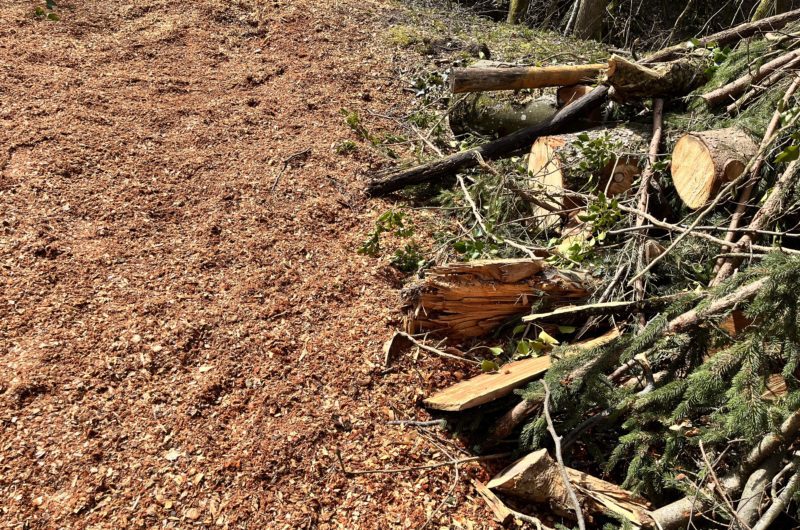
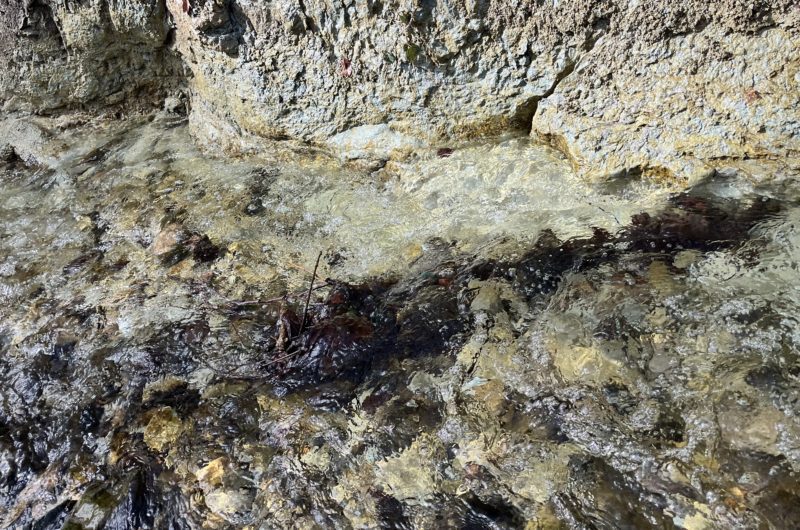
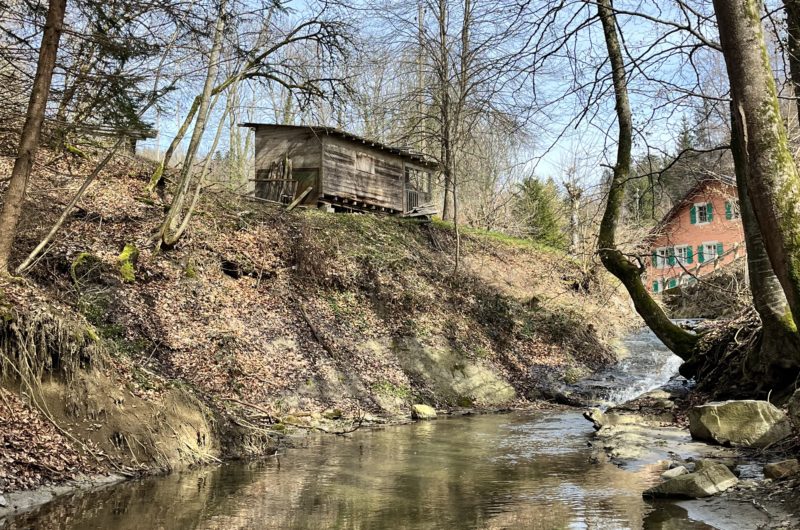
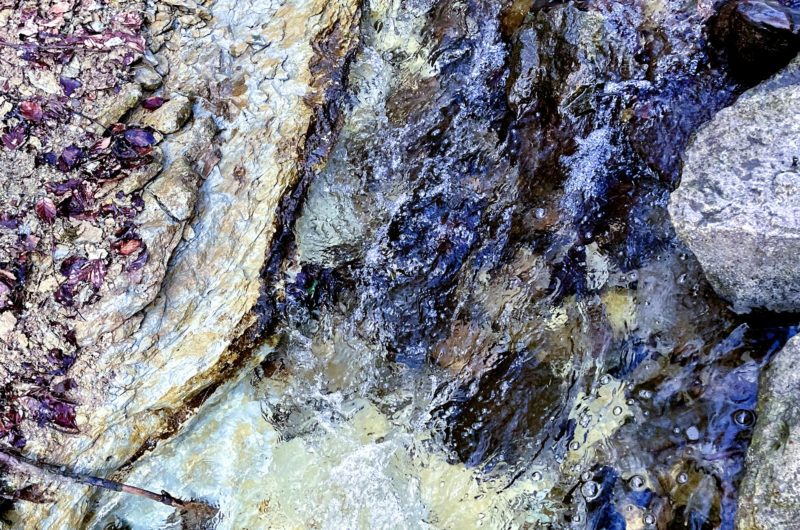
| #4 April 13rdThe story of the Flon River gives me a feeling of “new life in stagnation”. The landscape of the Flon valley has been completely changed. It has redeveloped into a different kind of life. The river is not dead either, it continues to grow. 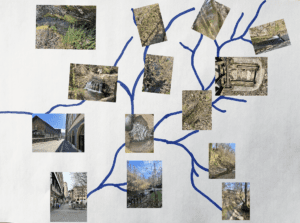 At certain moments, the flow of the river overlaps with the flow of people in the city. The march of the crowds is another kind of river. Today we can only recreate the river itself according to our imagination, but perhaps more importantly, the river as it is in the present. At certain moments, the flow of the river overlaps with the flow of people in the city. The march of the crowds is another kind of river. Today we can only recreate the river itself according to our imagination, but perhaps more importantly, the river as it is in the present.Flowing, stagnant, truncated, gone. New landscapes, new life, new thoughts, new ways of growing. Before coming to Switzerland, I had a problem with my creation: stagnant in the crossroad, with many paths in front of me and not knowing which one to choose. This also meant that there was actually no road. You can’t say what you want to say, and you don’t know where to start if you can. 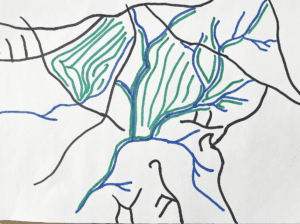 This is a kind of stagnation, blocking oneself. During my walk along the Flon river, it was as if I was retracing my own path.I saw the city cutting the river off and I saw it flowing further away in a hidden way. I hope that my inner water will continue to flow in another way too. |
#4 4月13日Flon River的故事给我一种“阻滞中新生”感受。被截断的下游彻底改变了河谷的景观。河谷重新发展出了另一种生机。河流也没有死去,依然继续生长。在某些时刻,河流的流动和城市里人群的流动发生了重叠。人群的行进未必不是另一种河流。今天的我们只能根据想象去重现河流本身的样子,而更重要的也许是河流当下的样子。 流动,停滞,截断,消失。 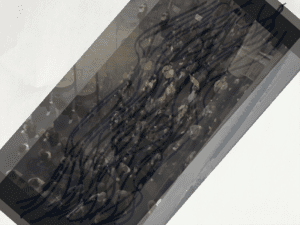 新的景观,新的生命,新的念头,新的生长方式。在来瑞士之前,我的创作遇到了一个问题:停滞在中间,面前有许多条路,不知道该选择哪条。这也就意味着其实没有路。 新的景观,新的生命,新的念头,新的生长方式。在来瑞士之前,我的创作遇到了一个问题:停滞在中间,面前有许多条路,不知道该选择哪条。这也就意味着其实没有路。想说的话不能说,能说的话又不知道从哪说起。 这就是一种停滞,自己把自己阻滞了。 在沿着Flon River走的这段时间,我也仿佛重走了一遍我自己的路 我看到城市把河流截断,也看到河流以隐蔽的方式流向更远的地方。 希望我内在的水也能够以另一种方式继续流动下去。 |

